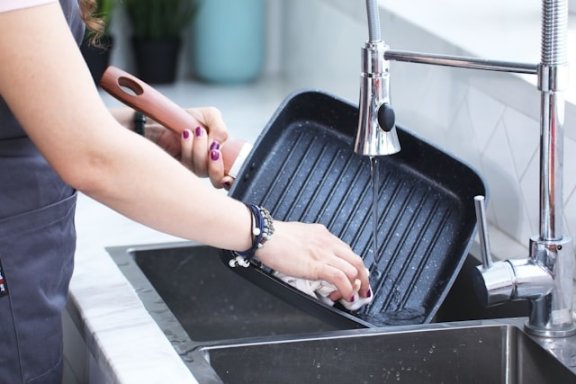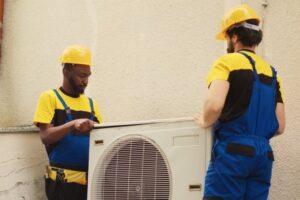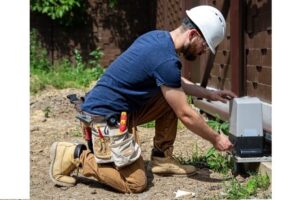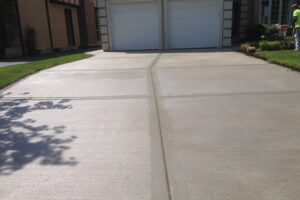These leaks occur when the water pipes beneath your home’s concrete foundation develop cracks or holes, allowing water to escape and cause damage. If left unchecked, slab leaks can lead to serious structural issues, mold growth, and high water bills.

Table of Contents
What Causes Slab Leaks?
When dealing with a slab leak, you may wonder what caused it in the first place. Any number of factors can contribute to the development of slab leaks, including:
- Corrosion: Over time, copper pipes can corrode due to chemical reactions with the water and soil, leading to leaks.
- Abrasion: Pipes rubbing against concrete or other materials can cause wear and tear, eventually resulting in leaks.
- Poor installation: Improperly installed pipes are more susceptible to damage and leaks.
- High water pressure: Excessive water pressure puts additional strain on pipes, increasing the risk of leaks.
- Foundation shifts: As the soil beneath your home shifts and settles, it can cause pipes to bend, crack, or break.
Finding the Leaks
Early detection is crucial in minimizing the damage caused by slab leaks. Some common signs to watch out for include:
- Unexplained increase in water bills
- The sound of running water when no faucets are open
- Warm spots on the floor
- Cracks in walls or baseboards
- Mold or mildew growth
- Decreased water pressure
- Damp or soggy patches on your lawn
If you notice any of these signs, contact a professional plumber for an inspection.
Preventive Maintenance Tips
While it’s impossible to eliminate the risk of slab leaks entirely, there are several preventive measures you can take to minimize the likelihood of their occurrence:
- Regular plumbing inspections: Schedule annual plumbing inspections with a licensed professional to identify and address potential issues before they escalate.
- Maintain proper water pressure: Install a pressure regulator to ensure your water pressure stays within the recommended range, typically between 40 and 70 psi.
- Use high-quality pipes: When building a new home or renovating, opt for high-quality, durable pipes to reduce the risk of corrosion and damage.
- Protect pipes during construction: Ensure that pipes are properly protected and supported during the construction process to minimize the risk of damage.
- Landscaping alert: Avoid planting trees with invasive root systems near your home’s foundation, as these roots can damage pipes over time.
Addressing Slab Leaks
When you spot a slab leak, don’t hesitate to get professional assistance. There are two primary repair methods:
- Spot repair: This involves accessing the damaged section of the pipe through the concrete slab and repairing or replacing it. This method is suitable for minor leaks and is less invasive than a complete repipe.
- Repiping: In cases of extensive damage or older homes with deteriorating pipes, a complete repipe may be necessary. This involves replacing all the pipes beneath your home’s foundation, which is a more comprehensive and costly solution.
Your plumber will assess the extent of the damage and recommend the most appropriate repair method for your situation.
Slab leaks can cause major damage to your house if the problem is not addressed in a timely manner. When you understand the causes, signs, and preventive measures associated with slab leaks, you can be proactive in protecting your property. Regular maintenance, prompt detection, and fast action in the face of a slab leak can save you time, money, and stress in the long run.




